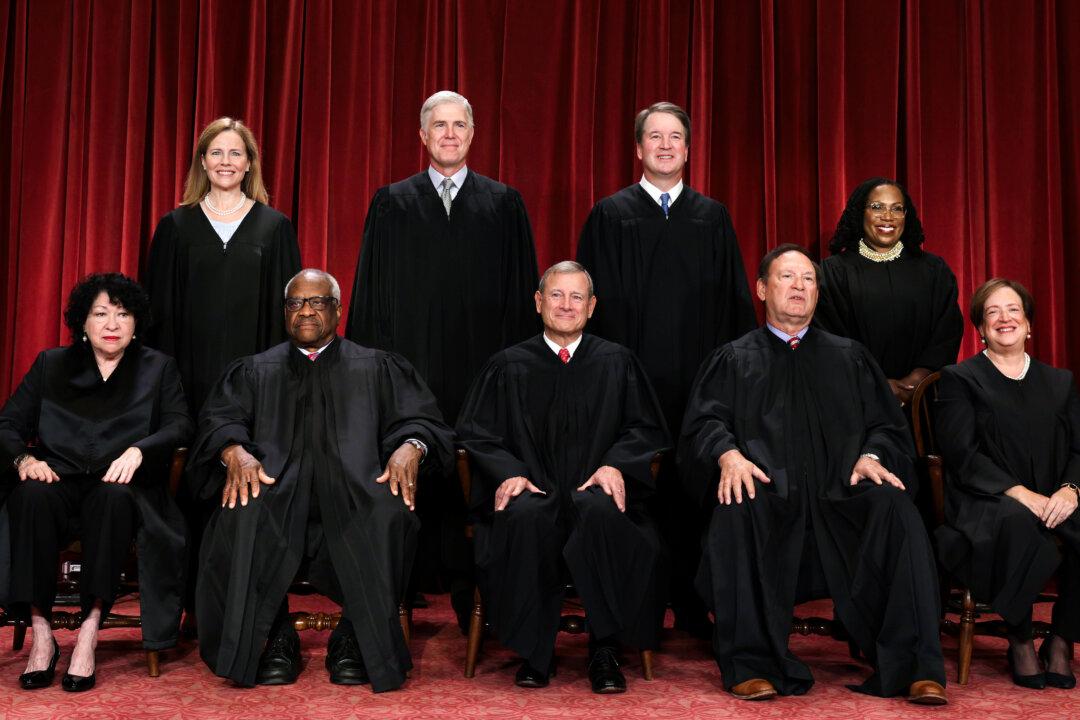A judiciary body will review an ethics complaint that was recently filed against U.S. Supreme Court Justice Ketanji Brown Jackson and accused her of failing to disclose her husband’s consulting income, according to a conservative policy group.
The Committee on Financial Disclosures in the Judicial Conference confirmed that the complaint filed by the conservative Center for Renewing America is now under review and was sent to the Financial Disclosers Committee, said the center on Monday.





